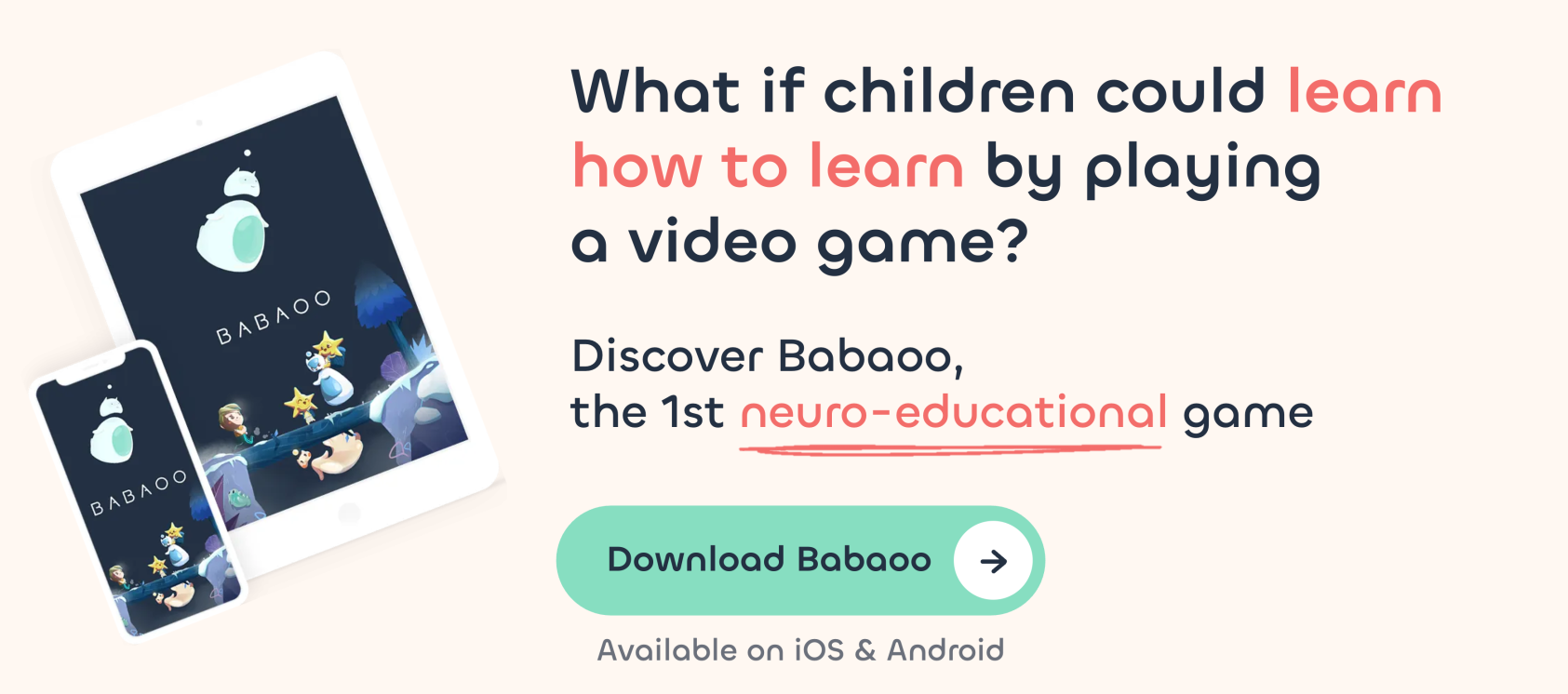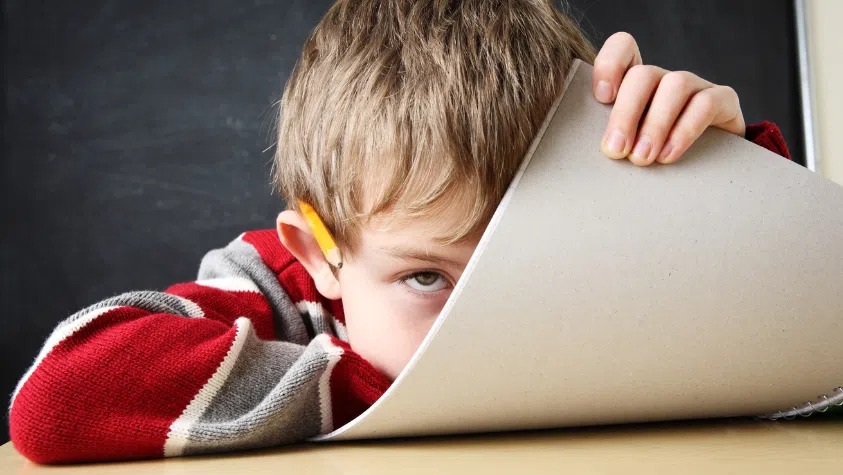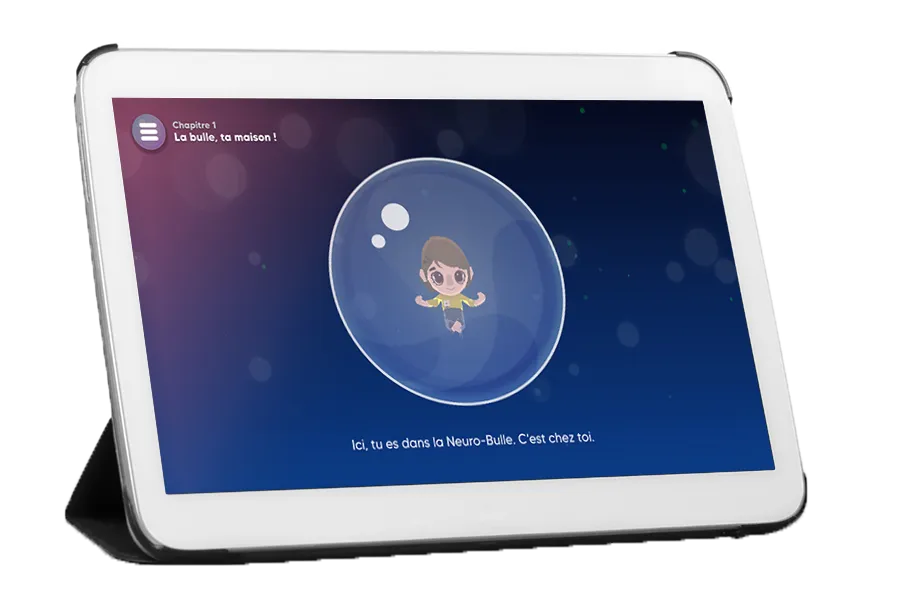From a very early age, your child has been bursting with energy, seems indefatigable, develops 1,000 ideas a second and detects details in the landscape that you don’t see but which fascinate him?
As a parent, you see your child as a little artist. And yet, at school or outside the home in general, you hear about certain learning difficulties. He has trouble concentrating, even though he plays for hours at a time at home. They report signs of inattention, impulsivity and even hyperactivity. Sometimes these symptoms are also present in your child, and that worries you.
Find out what ADHD is and how to recognise the tell-tale signs that may prompt you to consult a specialist. Babaoo Mag has the facts for you! 💡
What is ADHD?
ADHD or Attention Deficit Disorder with or without Hyperactivity is a neurodevelopmental disorder that can affect a child’s behaviour, learning and social relationships.
In children with ADHD, there is an imbalance of neurotransmitters in the frontal lobe. This dysfunction may be the result of hereditary factors, but it may also be influenced by other factors such as prematurity, cranial trauma or a lack of oxygen at birth.
For a long time, it was thought that this disorder could not be detected before the age of 6 or 7. However, it is now clear that warning signs can sometimes be seen from early childhood, as the child develops interactions with his environment and the people around him.
Three ADHD profiles have been identified
- The predominantly inattentive profile:
The child has difficulty concentrating, maintaining attention over time, following instructions and completing tasks. Dreamy and disorganised, they are very distracted, as if “in the moonlight” or lost in thought.
- The predominantly hyperactive profile:
A veritable live wire, these children are always restless and constantly need to move. Impulsive, they have difficulty waiting their turn and often interrupt others. Finally, they have difficulty controlling themselves and managing their own emotions.
- The mixed ADHD profile:
This is the most common ADHD profile. As its name suggests, it combines the symptoms of the two previous profiles. The child will therefore present with inattention, hyperactivity and impulsivity at the same time.
Despite these definitions, a child can sometimes be like a mini-tornado at home, ADHD or not! So beware of over-hasty self-diagnosis!

How do you recognise ADHD in children?
Attention Deficit Disorder with or without Hyperactivity is particularly difficult to diagnose in children, because some symptoms correspond to perfectly normal behaviour as they grow up. At that age, who hasn’t been distracted or dissipated?
However, if you notice that your child is displaying several of the following symptoms and that this situation persists over time, the advice of a specialist would certainly be welcome:
- Your child is unable to concentrate
- Struggles to follow instructions
- Makes a lot of careless mistakes
- They rarely finish a project they’ve just started, even if it’s a game or a simple drawing
- Can sometimes appear lazy or unmotivated
- Often forgets or loses things
- Has difficulty getting organised
- He’s tireless, always on the move and can’t stay still
- Talks a lot and constantly cuts others off
- Is impatient, unruly and often breaks the rules
- Lacks self-confidence
- Irritable and highly emotional
- Etc.
✏ Note: Another bias can also complicate the diagnosis of ADHD in children: their lifestyle. In fact, lack of sleep, an unsuitable diet or overexposure to screens can influence their behaviour and put you on the wrong track…
Diagnosing ADHD: which specialist should you consult?
Whether at home, at school, at Gramps & Grammie or at football with their friends, your child’s behaviour is out of kilter and the situation doesn’t seem to be improving. In this case, the best solution is to consult a health professional. But who should you talk to? 🔎
Only a specialist in this disorder in children will be able to make a clear and precise diagnosis. Child psychiatrists and neuropaediatricians are the best people to talk to. Don’t hesitate to talk to your paediatrician, who will certainly be able to guide you through the process.
Child psychiatrists and neuropaediatricians: specialists in ADHD in children
To understand whether or not your child has ADHD, the doctor will generally conduct an anamesis. This is an in-depth clinical assessment based on the child’s personal, family and medical history, which will reveal signs of inattention or hyperactivity from an early age.
The specialist will also try to understand whether the symptoms described are isolated and momentary or, on the contrary, generalised (within the family, with friends, at school, during extra-curricular activities, etc.). In this complex exercise, any information about your child’s behaviour will be useful (don’t forget to ask Gramps & Grammie for their opinion 👴👵 ).
Next, the doctor will potentially use various neuropsychological tests (psychomotor, attention, memory or language tests, for example) to support his or her analysis.
Finally, the specialist will draw up a report which will be compared with a list of internationally recognised diagnostic criteria (DSM-5) to determine whether your child has ADHD.
What follow-up is needed to help your ADHD child?
Every child has his or her own ADHD. It is therefore impossible to predict your doctor’s advice. If your child is diagnosed as suffering from a mild deficit disorder, he or she will most likely give you tips and tricks to limit the impact of the disorder on a daily basis. On the other hand, in more severe cases that are likely to hinder your child’s development and fulfilment, he or she may advise regular monitoring and, where essential, appropriate medication.
✏ Note: In some cases, ADHD may be accompanied by associated disorders. For example, if your child also has language problems, the child psychiatrist or neuropaediatrician will certainly advise you to consult a speech therapist or logopedist.
Whatever the case, a child with ADHD needs support. At home, of course, but also at school.
- At home, a suitable framework, procedures and routines will be your best allies in helping them to get organised and (re)gain self-confidence.
➡️ More details in the article “How to help an ADHD child at home“. - In class, his teacher will also have an important role to play by making reasonable adjustments, for example: allowing regular breaks to stretch his legs, dividing complex tasks into intermediate stages, etc.).
➡️ See “How to support an ADHD child at school“.

Babaoo recap!
- Just because your child is on springs or has 36,000 ideas in his head doesn’t necessarily mean he has ADHD!
- The diagnosis of ADHD is very complex: while some of the symptoms are completely normal behaviours in a child’s development, others can also be caused by a poor lifestyle.
- Are you worried about attention problems, hyperactivity or impulsivity? Talk to your paediatrician, who will decide whether or not it would be useful to consult a child psychiatrist or a neuropaediatrician.
- Does your child really have ADHD? What if this atypicality makes him even more unique? After all, not everyone can be so creative, undertake several projects at the same time or think “out of the box”! And the rest? It’s true, you’ll have to adapt. But with the right understanding and support, you’ll be able to overcome the challenges of everyday life. And then… you’ll be there! 🥰





